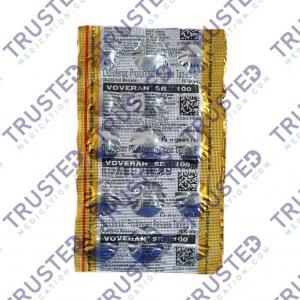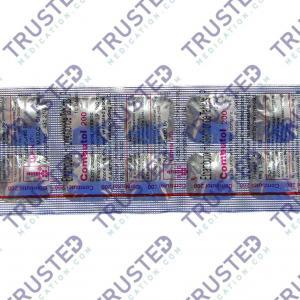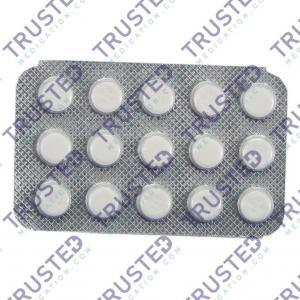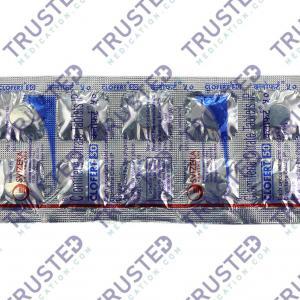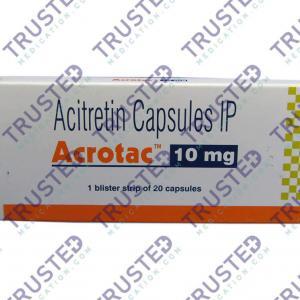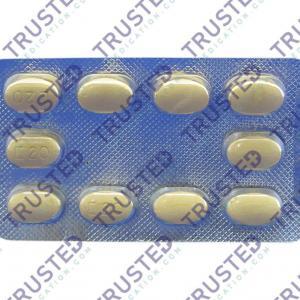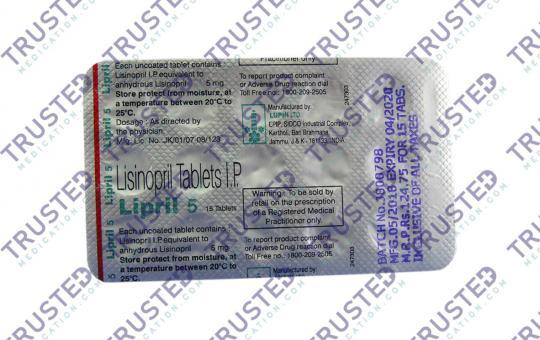
Lisinopril is a prescription drug that comes in tablet form. It is indicated for:
- Treating a heart condition known as symptomatic heart failure
- Lowering the blood pressure in both adults and children who are at least 6 years of age
- Improving the chances of survival after a heart attack
- Treating kidney disease in people with diabetes
- A heart attack that may lead to a weakening of your heart
- Preventing early dead resulting from heart failure, high blood pressure or heart attack
- Preventing kidney problems in people with diabetes
Lisinopril is an ACE inhibitor or Angiotensin Converting Enzyme inhibitors. It lowers the blood pressure by relaxing and widening the blood vessels. ACE inhibitor inhibits the activity of the enzyme ACE which in return helps decrease the production of angiotensin II. Angiotensin II is a potent enzyme circulating the body. It causes the smooth muscles in the blood vessels to contract and to become narrow. Once the production of angiotensin II decreases the blood vessels dilate and the blood pressure is reduced. An ACE inhibitor is mainly prescribed for the treatment of high blood pressure. High blood pressure or hypertension is a common but fatal condition when left untreated. Untreated high blood pressure can cause stroke, heart failure, heart attack, loss of vision, kidney failure and other health problems.
Lisinopril helps lower blood pressure. Lowering the blood pressure can prevent damages to the brain, heart, blood vessels, kidney and other organs of the body. In addition to taking Lisinopril, making a lifestyle change will also help manage and treat high blood pressure. These changes include maintaining a healthy weight, eating a diet that is low in salt and fat, not smoking, drinking alcohol in moderation and exercising at least 30 minutes a day.
Lisinopril also makes it easier for the heart to pump blood to all parts of the body. It works by blocking the action of ACE. This reduces the production of angiotensin II responsible for the narrowing and constricting of the blood vessels.
When and How to Use Lisinopril
Lisinopril is a first-line treatment for high blood pressure. It is used along with other medications to treat high blood pressure and heart failure.
- The typical dose for treating patients with heart failure is 5 mg to 40 mg a day. The initial dose is 5 mg. Your doctor may increase your dose to 10 mg every two weeks to achieve the maximum effect.
- The dose for treating high blood pressure is 10 mg a day with a maximum recommended dose of 40 mg a day.
- For heart attack, the typical initial dose is 5 mg followed by another 5 mg after 24 hours. After 48 hours, take 10 mg a day for 6 weeks.
Lisinopril comes in a tablet form for you to take by mouth. Take your medication exactly as prescribed. Do not skip a dose even if you feel well. This medicine can only control your blood pressure and heart failure but it will not cure them.
What to know before taking Lisinopril
- Do not use this in people with severe kidney damage. Do not also use this if you are more than 3 months pregnant.
- Diabetic patients should not use this along with medications that contain aliskiren
- Do not use a potassium supplement or salt substitute while taking Lisinopril unless you are instructed by your doctor.
- Do not use this if you are pregnant or breastfeeding. This drug can harm your unborn baby. If you become pregnant, stop using this right away and inform your doctor.
- Lisinopril can make you dizzy especially during the first few days of your treatment. It’s best to take your first dose before bedtime. When getting up do it slowly and if you feel you are still dizzy, lie down until the symptoms pass.
- Do not use Lisinopril if:
- You have a history of swelling of the face, lip or tongue with no known cause (idiopathic angioedema)
- You are allergic to other ACE inhibitors
- You are pregnant
- You are under 12 years of age
- You have a recent kidney transplant
- Use in a lower dose if:
- You are more than 65 years of age
- You are taking other medications for high blood pressure
- You have low salt levels in the body due to diuretic therapy, low-sodium diet, kidney dialysis, diarrhea, dehydration or vomiting
- You have a severe heart failure
- You have atherosclerosis or hardening of the arteries
- You have very low blood pressure or hypotension
- You have diabetes
- You have a kidney failure which requires a certain type of hemodialysis
- You have a decreased liver function
- You have hypertrophic obstructive cardiomyopathy, a type of heart disease
- You are receiving therapy to remove certain types of fat in the blood using a machine
- You have a desensitization therapy to decrease allergy to bee stings
Possible Side Effects of Lisinopril
Consult your doctor if the following symptoms do not go away:
- Dizziness
- Cough
- Nausea
- Runny nose
- Diarrhea
- Excessive tiredness
- Weakness
- Sneezing
- Decreased in sexual ability
- Runny nose
Serious side effects are:
- Chest pain
- Fainting
- Lightheadedness
- Difficulty swallowing or breathing
- Yellowing of the eyes or skin
In case of serious side effects, contact your doctor as soon as possible.
Getting the Best Result from Lisinopril
- Lisinopril may cause diarrhea, vomiting or heavy sweating which can make you dehydrated. To avoid this, drink plenty of fluids while under medication.
- Lisinopril is suitable for children above 6 years of age only for the treatment of hypertension.
- Like any ACE inhibitors, this drug can cause non-productive cough which will go away once you have stopped using it.
- Lisinopril can cause an abrupt swelling of the face, legs, arms, tongue, throat and intestine. This can be fatal and you have to consult your doctor about this.
- Alcoholic beverages can increase the blood pressure-lowering effect of Lisinopril which can make you feel dizzier. Sometimes it can make you faint. It’s best not to drink alcoholic beverages while under medication.

